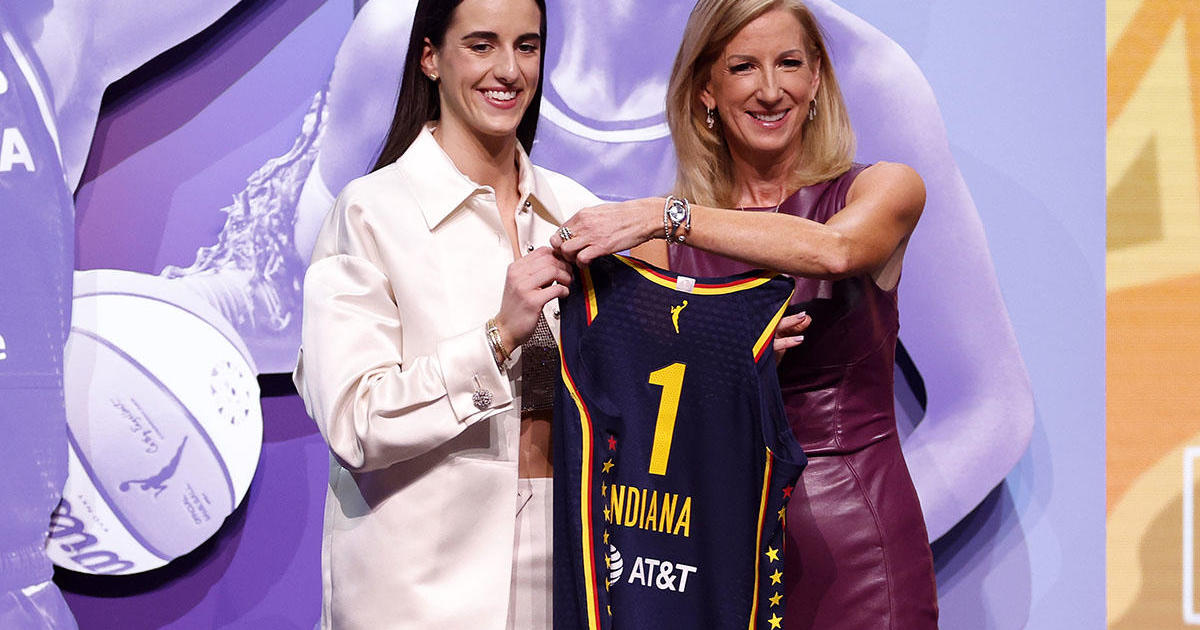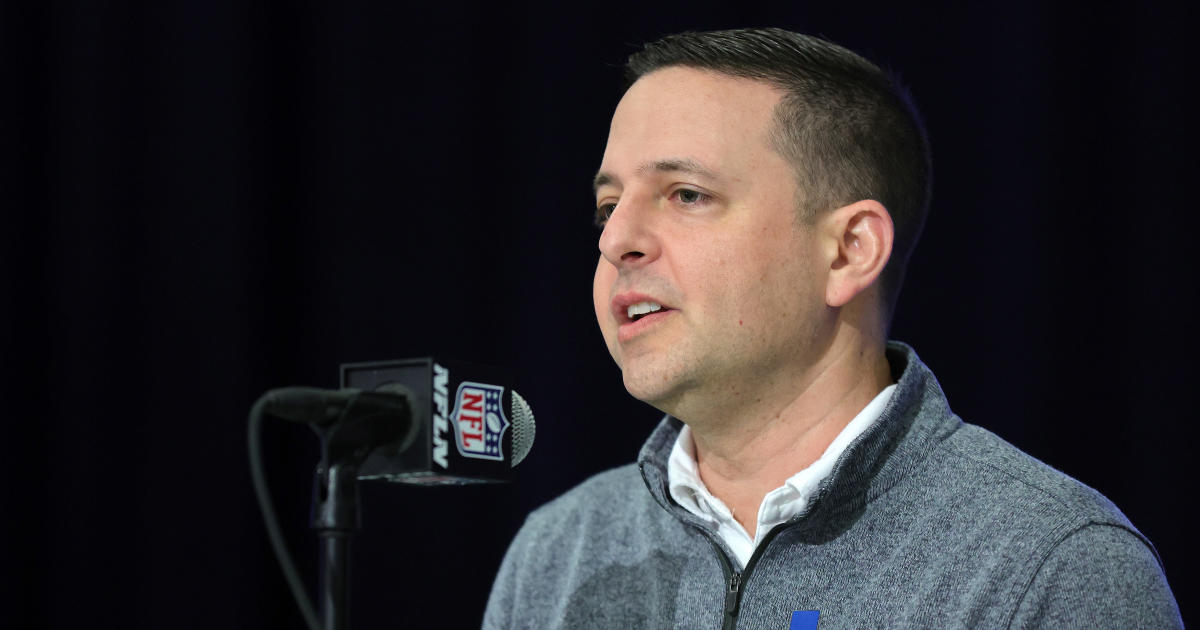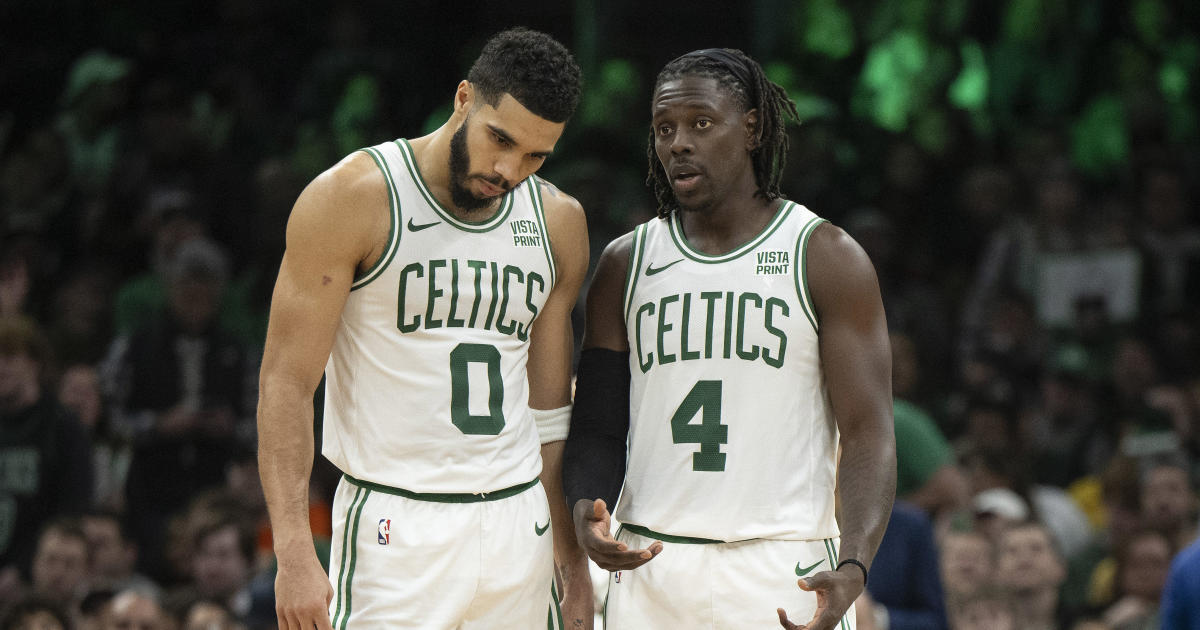Johnny Manziel Controversy Should Be Catalyst To Change The Corrupt NCAA
BOSTON (CBS) -- A whole lot of people can make a whole lot of money off the work of Johnny Manziel on the football field -- a whole lot of people, that is, except for Manziel himself.
The Texas A&M quarterback known lovingly around the nation as Johnny Football is in hot water this week, after ESPN reported the NCAA is investigating whether the quarterback made "a five-figure flat fee" for signing autographs. If the allegations are true, it is a decision that could prove very costly for Manziel, who makes zero dollars per year playing football for the Aggies.
What Manziel, 20, does stand to lose is his NCAA eligibility. And if he loses his eligibility, he loses the millions he is all but guaranteed to make as a top pick in the 2014 NFL draft, and he'll do so because he tried to make some money off ... himself.
To be clear, there is no reason to feel extreme sympathy for Manziel, who comes from a wealthy family. The kid drives around campus in a Mercedes, after all. Whatever Manziel allegedly made off the autographs, it wasn't worth the risk of losing his right to play for Texas A&M this season.
But is it really a "right" to play? It seems a whole lot more like a requirement to play, so that many men who lack Manziel's ability to fill a stadium and draw in millions of television viewers are able to become very rich men. Manziel is getting his "free education," but he is simply biding his time until he is eligible to enter the NFL next season. He's already proven he can dominate the college game, but under NFL rules, a player cannot enter the draft until he is three years out of high school.
And so Manziel is required to spend another season at College Station, though he could be facing a harsh suspension or an outright loss of playing eligibility. While such a punishment stands to take a significant chunk of money off Manziel's eventual NFL deal, many men have already made their money off Manziel.
Take Aggies head coach Kevin Sumlin. His salary of $2 million was increased more than 50 percent after Manziel's phenomenal 2012 season, and the head coach now makes $3.1 million annually*. We'll have to assume Sumlin sent Manziel a gift basket or an Edible Arrangement for getting him that extra million bucks, except that would most likely violate the NCAA's rules. Perhaps he gave him a high five. Make no mistake though -- the coach wants Manziel back. If the Aggies win a national title, Sumlin makes $400,000 more*. If the Aggies win the SEC, Sumlin gets an extra $150,000*.
Sumlin's staff will share $3.4 million in salary* this season, an increase of $700,000 from last season. Manziel's quarterback coach, Jake Spavital, who is also the co-offensive coordinator, reportedly makes $375,000 annually himself*. Texas A&M athletic director Eric Hyman can make up to $1 million this season* as well.
All those men work under the blanket of the NCAA, led by president Mark Emmert, who was paid $1.7 million* in 2011, the same year that SEC commissioner Mike Slive made $1.6 million*.
The school as a whole profits greatly off Manziel's work as well. The official bookstore sells No. 2 football jerseys for $59 a pop*, as well as No. 2 jersey T-shirts in three different colors for $18 each*. ESPN also reported that the 12th Man Foundation, the Aggies' booster program, made $20,000 from donors* who won the honor of sitting with Manziel at an upcoming dinner.
Texas A&M split $7.45 million* with Oklahoma for playing in the 2013 Cotton Bowl. Manziel threw for 287 yards and two touchdowns and ran for a ridiculous 229 yards and two more touchdowns to earn offensive MVP honors. He made zero dollars that day.
On and on it goes, and in comparison to the rest of the SEC, Texas A&M is small potatoes. Nick Saban pulls in $5.3 million* to coach Alabama, with four other SEC head coaches having higher salaries than Sumlin*.
And now, a player stands to lose his playing eligibility and consequently major money in his first professional contract, all because he had the audacity to accept money that was offered to him because he's a star athlete.
There's no simple solution to the NCAA's problems. Far too many people make far too much money for any sweeping change to quickly take effect. The idea that college players should be paid doesn't work and is not in and of itself a clean concept. There are simply too many athletes in too many different sports for a fair system to be set up. Steve Spurrier's suggestion to pay players $3,600 apiece would be better than the current system, but how does the Heisman Trophy-winning quarterback make the same amount as the third-string defensive end who might take three snaps all season?
One major change that could help the situation is to stop forcing athletes to be in college. That's a rule change that would affect basketball much more than football, but the three years out of high school requirement in football can be restricting for many players. Rather than enter the draft after a redshirt freshman season, a player like Manziel is forced to spend another year playing for free. If that player tears his knee or suffers a severe concussion, his career is put in jeopardy after he earned a total of zero dollars from playing. (His coaches, AD and the like will all make their money regardless. They'd likely just hope the injury comes on the last play of the season, so as not to affect their bonuses.)
Second, the restrictions need to be eased on situations like this. In America, stars earn their success, and they have the right to profit off it. If "Honey Boo Boo" can make $50,000 for being exploited on camera for the nation's entertainment, why can't Manziel or any other athlete? What's the difference? If anything, the athletes do much more to earn their cash, and they're risking much more by being on the field in a contact sport while playing for free.
Yet, those are changes that likely will never happen. Men in suits enjoy receiving their ever-increasing salaries quite a bit, thank you very much, and as long as they're the ones in charge, it's safe to expect little to no change. In the meantime, a 20-year-old will be investigated for being paid for being himself, and those men in those suits will decide his fate. Maybe they'll ban him for three games, a relative slap on the wrist that shouldn't hurt his draft stock too much if he manages to play well when he returns to the field. Or maybe they'll deem him ineligible altogether, hurting Texas A&M's profits and cutting down on TV revenues for broadcast partners. They don't want to go that route, but if they determine Manziel's offense to be egregious enough that a message must be sent to any other athlete who may try to make money for risking his career in every collegiate game played, they will.
And for now, we're all left to wonder .... what exactly are we doing here?
*The NCAA is a nonprofit organization.
Read more from Michael Hurley by clicking here, or find him on Twitter @michaelFhurley.



